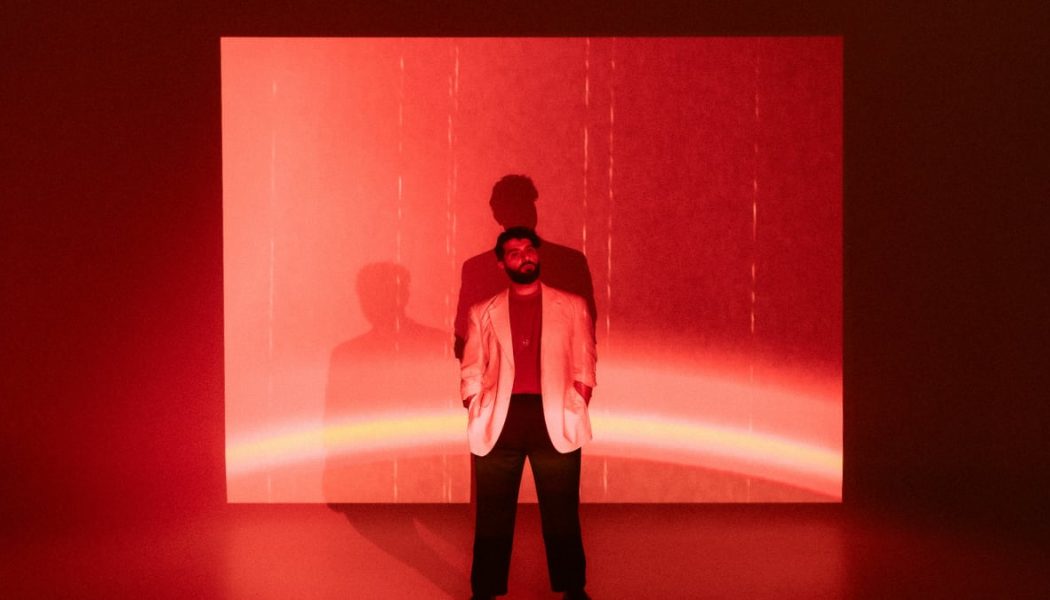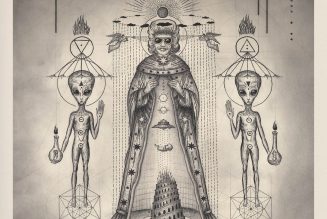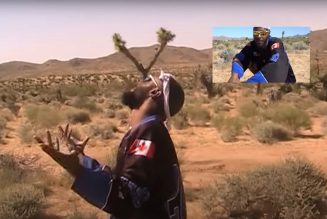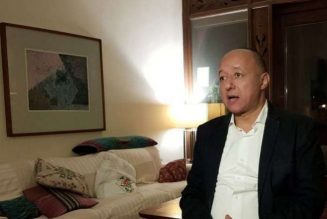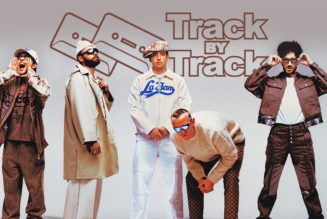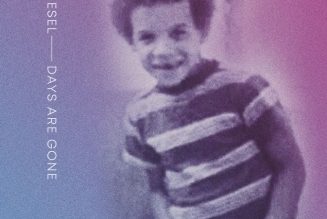Refugees are some of the strongest, most resilient people. They’re tough, determined, and not afraid to chase their dreams.
Since Motez began making dance music almost a decade ago, he has consistently explored new sounds and has not held back from diving into deeply philosophical topics about the human condition.
Perhaps it’s because he has already overcome some extremely adverse circumstances. Motez was born in Baghdad, where he survived Saddam Hussein’s rule in Iraq and lived through the Gulf War. He eventually moved to Australia in 2006, where he’s lived ever since.
Since then, he has emerged as one of Australia’s most inventive music producers, amassing millions of streams and performing at various festivals across the globe. However, despite all the wins, he has never forgotten where he came from. He’s extremely vocal about the global refugee crisis and has even fundraised for Australia’s Asylum Seeker Resource Center.
After the COVID-19 pandemic struck, Motez found the time to look within, meditate, and delve further into his own life experiences. He wound up creating the contemplative Soulitude EP, a soothing record that moonlights as a source of healing during a stressful and uncertain time.
Now that the Australian music scene has returned, Motez is back with a renewed energy for his newest single “Give Me Space,” a collaborative track with The Kite String Tangle released via Sweat It Out. Motez chatted with EDM.com to discuss the song’s origins and how his experiences as a refugee have shaped his music.
EDM.com: Let’s start with your new release “Give Me Space.” Tell us a little bit of the background behind the song. How did you end up collaborating with The Kite String Tangle?
Motez: Since we’ve all been on lockdown for the last year, I’ve been listening to a lot of cold wave music, like synthwave, new wave music that’s coming out of Eastern Europe. It’s 80s influence but in more of a techno sort of mold. It has a strangely emotional component to it, so I’ve been dabbling with that sort of sound.
I’ve known Danny, The Kite String Tangle, for a while. Every time I went to Brisbane he’d come to my show, and I’d go to his when he’s in Adelaide. I love the dude. He’s a great guy and incredible musician. His voice has that emotional component to it. He sent me a bunch of songs, and one of them was “Give Me Space.” I felt like it was quite relevant to the time because everyone all of the sudden had space, and they were grappling with whatever they needed to grapple with.
Whereas Soulitude was a bit more introspective, this one is more outward, more triumphant. It’s not as apologetic. Now we’re going into the phase of the darker, more rebellious side to that period of time, which is incredibly weird for all of us. I molded the two together and “Give Me Space” came about.
EDM.com: Your story is incredible. Before you were able to move to Australia, you lived through the Gulf War in Iraq and survived Saddam Hussein’s rule. What was that like?
Motez: It was weird. It feels like now that I’ve got the time and the perspective, it feels really weird to think back to that period of my life, even though I lived most of my life there. It’s incredibly challenging.
The Iraqi character is very resilient. We’ve seen it all. Even before Suddam Hussein, since the Ottoman Empire, and beyond that, because geographically where we’re placed is very volatile. We’ve had skirmishes here and people invade us here. That shaped not only the resilience of the Iraqi character, but how prolific we are from a musical perspective. I think it really shaped me in that I don’t take things for granted.
Being in the music business, I wasn’t carried away too much (I hope). I think it’s a sign of cynicism, in a sense. Like this is not real life, what I’m doing. And it’s a good wake up call. A lot of people in our business struggled a little bit with COVID and the lockdown because all of a sudden you’re faced with reality that you’re exactly the same as everybody else. I felt like if it wasn’t for my upbringing and where I was brought up and how my parents raised me, and the circumstances surrounding all the wars and dictatorship, I probably would have been a little looser working in music.
EDM.com: You’ve been incredibly vocal about the global refugee crisis, and even raised money for the Asylum Seeker Resource Centre. What is it about this specific issue that you think people need to know?
Motez: It’s not by choice that people want to leave where they live and where they grew up, where they have family ties. Family ties in Western culture are strong but it’s different in Eastern cultures. You have to uproot yourself and move somewhere else. That’s one thing I’ve dealt with in Soulitude with the track “Uproot.”
Something I’ve realized when I was in isolation and thinking about these things is, everyone is cooped up and everyone is isolated. People don’t choose to put themselves through that—they have to. The first thing refugees and asylum seekers want to do after moving to a different country is integrate themselves in these new societies. Don’t stick out like a sore thumb. They want to make sure they do their bit to contribute to the new cultures that they moved to, and those cultures also are enriched by proxy. I think there’s a lot more than just being scared of people moving to new countries. There’s a lot more to be gained from it.
EDM.com: How has your past as an immigrant and refugee shaped your music today?
Motez: A lot. From a mundane perspective, I don’t really take it for granted—what I do. I’m really appreciative of what I do, and I try to give back whenever I can.
But also from a musical perspective, a lot of Arabic music is similar to dance music in a sense that there is a buildup and then a release. There’s that dichotomy that is very present in dance music and electronic music in general. It made me appreciate Arabic music a lot. I’m not an Arabic music lover per se, but I appreciate it more and more and more. Every now and then I’ll try to sprinkle my music with some Arabic music here and there. Just the richness of it made me really appreciate music.
EDM.com: Is there anything else you want to share with our readers?
Motez: I would say for “Give Me Space,” wait until you see the video. The video is an insight into the song itself, where it comes from. There’s also some hints and clues there into what’s to come. It’s a very important video not only for the storytelling itself, but for building the picture of this new phase.
You can find “Give Me Space” on streaming platforms here.
FOLLOW MOTEZ:
Facebook: facebook.com/motez.music
Twitter: twitter.com/motez_music
Instagram: instagram.com/motez
Spotify: spoti.fi/2PnU9ry

